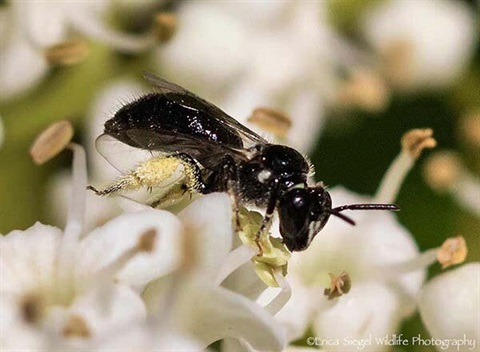Bees

Tasmania has over 100 native bee species, including bumblebees, reed bees, resin bees, and leafcutter bees.These bees are important pollinators for the state's native plants and forests.
Bees not only produce nutritious honey for home use but also play a crucial role in pollinating crops, plants, and garden flowers, enhancing food production and enjoyment for the community.
Native bees are attracted to flowers in blue, white, and yellow hues, rather than brighter colors like red. To attract them, consider planting natives such as wattle, lavender, bottlebrush, common daisy, grevillea, salvia, tea trees, and abelia. Allowing some vegetables and herbs to flower, like cabbage, lettuce, broccoli, and mustard, can also help. Creating a home and safe space for native bees in your backyard is easy: https://www.aussiebee.com.au/bee-hotel-building-tips.html
Currently there are no Burnie Council by-laws in relation to the keeping of bees. However, bee allergies can pose risks for some individuals, leading to concerns among neighbors when one party keeps bees. Proper management of beehives can significantly reduce these risks, promoting a harmonious relationship between beekeepers and the community.
For uncontrolled Hives or swarms, theTasmanian Beekeepers Association website www.tasmanianbeekeepers.org.au/swarm-collection provides contact details of beekeepers who are available for swarm collection.
Find out more about keeping bees from the Department of Natural Resources and Environment Tasmania or the Tasmanian Beekeepers Association.